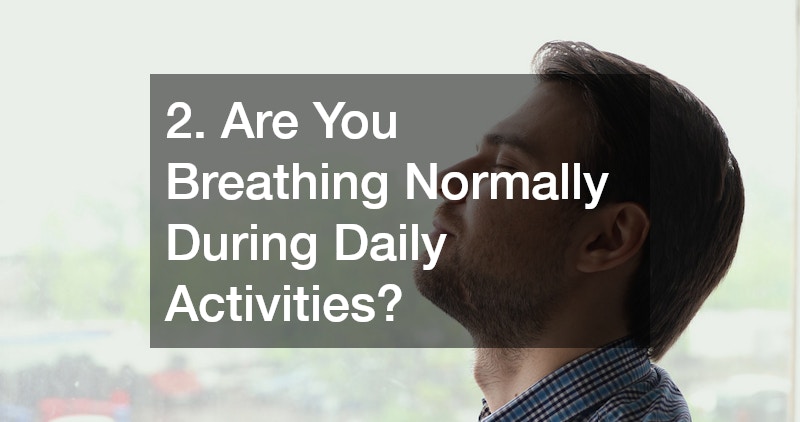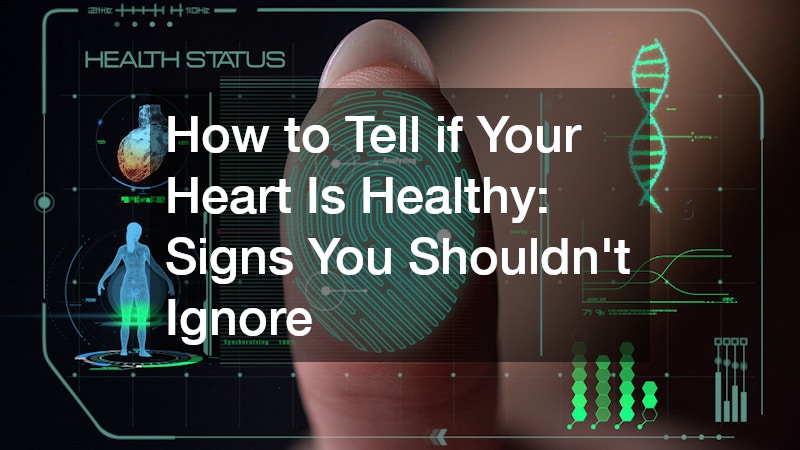Your heart is the engine that keeps your body running—and just like any engine, it needs regular care, attention, and early warning signs to function optimally. While we often associate heart problems with older adults or people with obvious health issues, the truth is that anyone, regardless of age or body type, can be at risk of cardiovascular disease. In fact, many heart issues develop silently over time, showing subtle symptoms that can be easily missed or misattributed to stress, fatigue, or aging.
That’s why understanding how to tell if your heart is healthy is essential for anyone who wants to live a long, active, and vibrant life. In this article, we’ll explore seven key signs that could indicate your heart is in great shape—or might need some attention. These signs are based on medical research, expert opinions, and heart health guidelines from trusted sources like the American Heart Association and the Mayo Clinic.
Whether you’re a fitness buff, someone recovering from health issues, or just a health-conscious individual trying to stay informed, this guide will equip you with the knowledge you need to monitor your heart health more effectively.
- 1. How’s Your Resting Heart Rate?
- 2. Are You Breathing Normally During Daily Activities?
- 3. How’s Your Energy Level?
- 4. Are You Maintaining a Healthy Blood Pressure?
- 5. How Do Your Cholesterol Levels Look?
- 6. Do You Experience Swelling in Your Legs or Feet?
- 7. Are You Sleeping Well? Watch for Sleep Apnea
- 8. Do You Recover Quickly After Exercise?
- 9. Do You Have a Strong and Regular Pulse?
- 10. How Often Do You Experience Chest Discomfort?
- Bonus: Preventive Heart Health Tips for the Health-Conscious
- Final Thoughts
1. How’s Your Resting Heart Rate?
One simple method to assess your heart health is by monitoring your resting heart rate (RHR)—the number of times your heart beats each minute when you’re calm and inactive, like first thing in the morning.
For most adults, a normal resting heart rate ranges from 60 to 100 beats per minute. However, if you’re particularly fit or athletic, you might notice a lower resting rate—around 50 to 60 bpm—which often reflects a strong, well-conditioned heart that doesn’t need to work as hard to circulate blood efficiently.
What to Watch For:
- Consistently high RHR (>100 bpm) may signal stress, dehydration, or underlying heart conditions.
- Very low RHR (<50 bpm) in non-athletes can indicate issues like bradycardia.
- Monitor changes over time, not just single readings.
How to Check It:
- Use a smartwatch or fitness tracker.
- Count your pulse for 15 seconds and multiply by 4.
- Use apps or at-home monitors with EKG features.
If your RHR trends upward over time or suddenly spikes, it’s worth consulting a doctor.
2. Are You Breathing Normally During Daily Activities?

Breathlessness during routine activities like walking, climbing stairs, or doing light housework is one of the earliest signs of a heart that’s under strain.
When the heart isn’t pumping efficiently, the body compensates by increasing your breathing rate. This is especially concerning when it happens without strenuous activity.
Ask Yourself:
- Do you get winded walking up a single flight of stairs?
- Are you gasping for air during simple tasks?
- Do you have to pause and rest frequently during light activity?
When to Be Concerned:
If breathlessness is sudden, persistent, or occurs alongside chest pain, fatigue, or dizziness, it could be a sign of:
- Heart failure
- Valve problems
- Coronary artery disease
Don’t brush it off as being “out of shape.” Persistent shortness of breath deserves a medical evaluation.
3. How’s Your Energy Level?
Fatigue is a common symptom in today’s fast-paced lifestyle. But when fatigue is chronic, worsening, or paired with other symptoms, it could be a sign your heart isn’t delivering enough oxygen-rich blood to your muscles and brain.
Common Signs of Heart-Related Fatigue:
- Struggling to complete daily tasks you once managed easily
- Feeling drained even after a full night’s sleep
- Unexplained afternoon crashes or brain fog
Related Heart Conditions:
- Cardiomyopathy (enlarged heart)
- Congestive heart failure
- Low cardiac output
If you’re tired all the time and can’t pinpoint why, it’s worth digging deeper into your cardiovascular health.
4. Are You Maintaining a Healthy Blood Pressure?
Here’s a hard truth: high blood pressure (hypertension) is known as the “silent killer” for a reason. You can feel perfectly fine while your arteries are under immense stress.
Blood pressure reflects the force of your blood pushing against artery walls. When this force is too high, it can damage your blood vessels and overwork your heart.
Ideal Blood Pressure Reading:
- Systolic (top number): Less than 120
- Diastolic (bottom number): Less than 80
Red Flags:
- Readings consistently above 130/80 mm Hg
- Headaches, vision changes, or nosebleeds (though rare)
- A family history of hypertension or heart disease
Investing in a home blood pressure monitor can help you track and manage your numbers proactively.
5. How Do Your Cholesterol Levels Look?
If you’re wondering how to tell if your heart is healthy, your cholesterol levels are a key indicator. High levels of LDL (“bad”) cholesterol can lead to the buildup of plaques in your arteries, increasing your risk of heart attack or stroke.
Healthy Targets:
- Total cholesterol: Under 200 mg/dL
- LDL: Under 100 mg/dL
- HDL (“good” cholesterol): Above 60 mg/dL
- Triglycerides: Under 150 mg/dL
What You Can Do:
- Get regular blood tests—at least every 4–6 years for healthy adults.
- Increase fiber and healthy fats (omega-3s) in your diet.
- Exercise regularly to raise HDL and lower LDL levels.
Cholesterol imbalances don’t cause symptoms until serious damage has occurred, so don’t skip this critical number.
6. Do You Experience Swelling in Your Legs or Feet?
Swollen legs, ankles, or feet—also known as peripheral edema—can be more than just a sign of standing too long. It may indicate that your heart isn’t pumping effectively, causing blood to pool in the lower extremities.
Look Out For:
- Swelling that worsens by evening
- Imprints left by socks or shoes
- Tightness or discomfort in the lower limbs
Possible Causes:
- Right-sided heart failure
- Poor circulation
- Kidney or liver issues
While mild swelling might be benign, persistent or worsening edema should prompt a visit to your healthcare provider for evaluation.
7. Are You Sleeping Well? Watch for Sleep Apnea
Your sleep habits can say a lot about your heart health. In particular, sleep apnea—a condition where breathing repeatedly stops during sleep—is strongly associated with high blood pressure, atrial fibrillation, and heart failure.
Many people don’t know they have sleep apnea, but signs include:
- Loud, chronic snoring
- Gasping or choking at night
- Waking up tired or with a headache
Sleep apnea disrupts oxygen flow, forcing the heart to work harder and increasing stress hormones in the body.
What You Can Do:
- Ask your partner if they notice pauses in your breathing.
- Get a sleep study through a clinic or an at-home device.
- Maintain a healthy weight and avoid alcohol before bed.
Treating sleep apnea with a CPAP machine or lifestyle changes can dramatically reduce heart disease risk.
8. Do You Recover Quickly After Exercise?
Your recovery heart rate—how quickly your heart rate returns to normal after physical activity—is a powerful, often overlooked indicator of cardiovascular fitness. After stopping aerobic exercise, your heart rate should begin to decline steadily. A healthy heart will typically drop by at least 20 beats per minute within the first minute of rest.
Slower recovery times can signal potential issues like poor cardiovascular conditioning or autonomic nervous system imbalance. If you find your heart rate remains elevated for several minutes post-exercise or you feel excessively fatigued, dizzy, or short of breath, it may be a sign your heart is struggling to keep up.
To improve heart rate recovery, prioritize regular aerobic workouts, stay hydrated, and avoid overtraining. Monitoring how your body bounces back after exertion can be just as important as how hard it works during activity.
9. Do You Have a Strong and Regular Pulse?
Checking your pulse can provide valuable insight into your heart’s rhythm and strength. A strong, steady pulse usually indicates that your heart is pumping blood effectively. On the other hand, an irregular, fluttering, or consistently weak pulse could be a warning sign of conditions like atrial fibrillation (AFib) or other arrhythmias.
To check your pulse, gently place your index and middle fingers on your wrist or the side of your neck. Count the beats for 30 seconds and multiply by two to get your heart rate. But also take note of rhythm—is it even and predictable, or irregular and jumpy?
Irregular pulses can result in poor blood flow, increasing your risk of stroke and other complications. If you ever feel a skipped beat, pounding sensation, or irregular pattern—especially if it’s persistent—it’s time to consult your doctor. Catching arrhythmias early can make a big difference in preventing more serious heart issues down the road.
10. How Often Do You Experience Chest Discomfort?

Many people associate heart attacks with sudden, crushing chest pain, but heart-related discomfort doesn’t always come on dramatically. In reality, chronic chest tightness, pressure, or mild pain can indicate an underlying issue, such as angina or early-stage heart disease.
Chest discomfort from a cardiac issue often feels like squeezing, heaviness, or burning and may spread to your shoulders, neck, jaw, or arms. It might be triggered by exertion or emotional stress and relieved by rest.
Don’t ignore “minor” chest sensations, especially if they recur or are accompanied by other symptoms like shortness of breath, nausea, dizziness, or fatigue. Health-conscious individuals often chalk up chest pressure to heartburn or muscle strain, but it’s always safer to get it checked. Remember, early intervention saves lives when it comes to heart problems.
Bonus: Preventive Heart Health Tips for the Health-Conscious
Even if you’re showing no alarming signs right now, maintaining a healthy heart is all about consistency and prevention. Here are some science-backed habits to support long-term cardiovascular wellness:
Diet:
- Prioritize whole grains, leafy greens, and lean proteins.
- Avoid trans fats and minimize added sugar.
- Incorporate heart-friendly foods like salmon, oats, and avocados.
Exercise:
- Aim for at least 150 minutes of moderate activity per week.
- Mix cardio (walking, biking, swimming) with strength training.
Stress Management:
- Practice mindfulness, yoga, or deep-breathing exercises.
- Get enough sleep and limit screen time before bed.
Annual Screenings:
- Blood pressure
- Cholesterol panel
- Blood glucose levels
- ECG/EKG if advised
Caring for your heart is one of the most important investments in your health that pays off over a lifetime.
Final Thoughts
Your heart works nonstop to keep you alive, and paying attention to its signals can save you from serious health issues down the line. By monitoring these seven signs—resting heart rate, breathlessness, fatigue, blood pressure, cholesterol, swelling, and sleep quality—you can better understand what your heart is trying to tell you.
Heart disease often progresses silently until it’s too late. But the good news is, you have the power to monitor, protect, and strengthen your heart through simple awareness and consistent lifestyle choices.
Whether you’re feeling great or just curious about your heart’s performance, it’s never too early (or too late) to check in with your body. If something feels off, don’t wait—talk to your healthcare provider and take charge of your heart health today.




